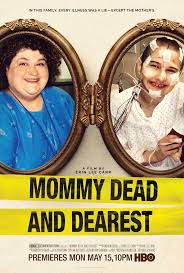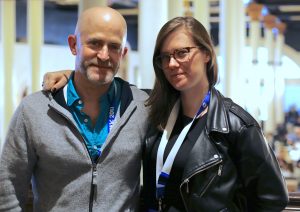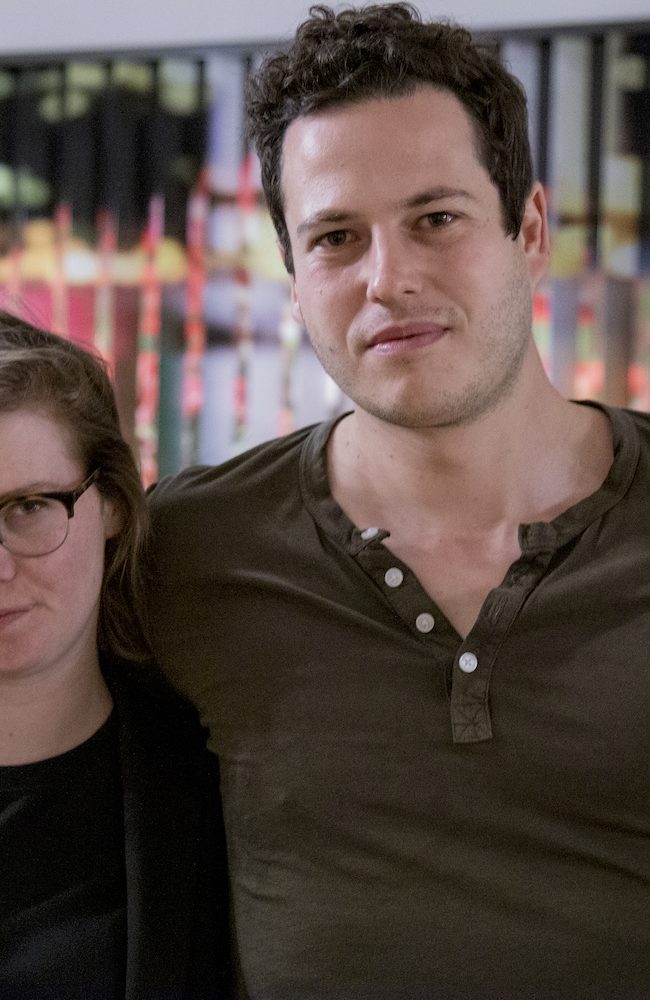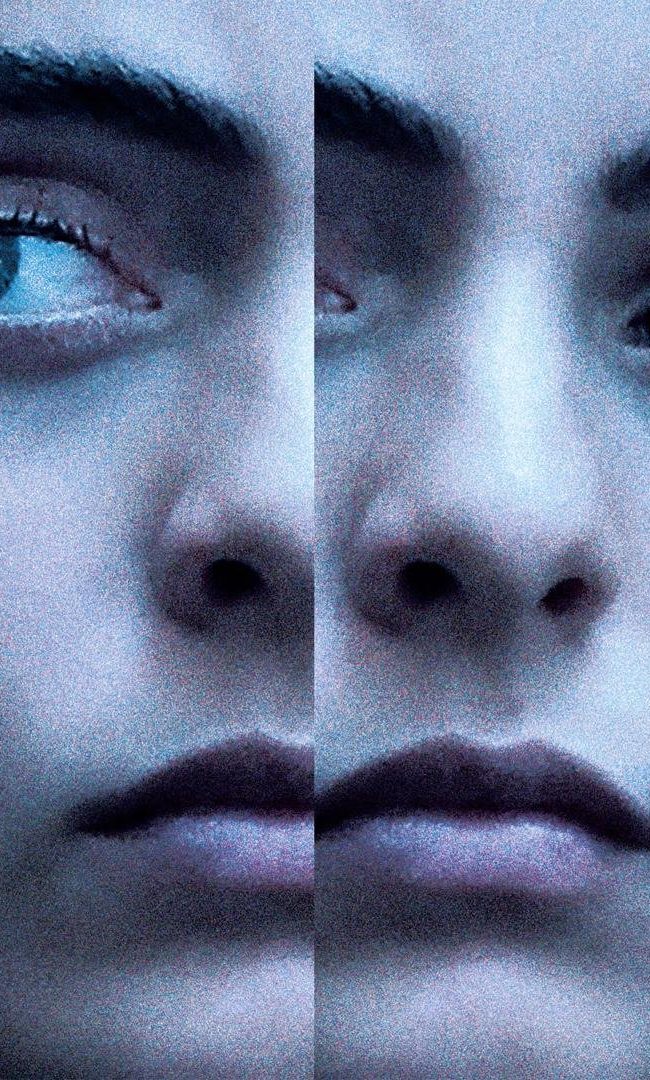 I met with director Erin Lee Carr, on Sunday, March 12, 2017, at SXSW, to discuss her second feature documentary, Mommy Dead and Dearest, which profiles the very odd case of how a mother’s killing by her daughter’s boyfriend – planned by that very same daughter – may not be the evil and unexplainable act it first appears. Young Gypsy Rose Blanchard, a young woman with a long history of documented physical and mental disabilities, could be the real victim here. A fascinating work of solid true-crime journalism, the movie just premiered on HBO on March 15. Here is a condensed digest of our conversation.
I met with director Erin Lee Carr, on Sunday, March 12, 2017, at SXSW, to discuss her second feature documentary, Mommy Dead and Dearest, which profiles the very odd case of how a mother’s killing by her daughter’s boyfriend – planned by that very same daughter – may not be the evil and unexplainable act it first appears. Young Gypsy Rose Blanchard, a young woman with a long history of documented physical and mental disabilities, could be the real victim here. A fascinating work of solid true-crime journalism, the movie just premiered on HBO on March 15. Here is a condensed digest of our conversation.
Hammer to Nail: Hello, Erin! I really enjoyed your film. Let’s start with the title. I love the title. When did you know you wanted to call the film that?
Erin Lee Carr: I’m glad you asked about that! I had a different title, but I worked with the fearless and incredible Sheila Nevins [of HBO], for whom I made the film. And she said, “I don’t know about this title.” The original working title was “Everyone Loves Gypsy Rose,” because there’s this song that is written for her by people who make songs for cancer survivors, and it’s this really weird Ozark song. And Sheila was like, “Nobody knows what that is.” And so I have to be honest, this was a Sheila title, and I love it.
HtN: Well, it works, because of its resonances beyond the film, and then it’s just so funny, once you know what the film is about. It’s great. So you had access to so many parts of your subject’s life. It’s really amazing. You’re in prison…or at least you’re interviewing Gypsy Rose in prison stripes…I don’t know where that interview takes place, perhaps you can tell me … you’re in the courtroom, and other really sensitive areas. Could you discuss the process of obtaining access to all of that?
ELC: It was a long, slow, painful process. Gypsy was in Greene County Jail [in Missouri], and I would go and visit her and meet through bullet-proof glass, and it was visually really striking. Sound would have been a total nightmare, however. And the sheriff did not care for me, I don’t think…we didn’t get along as well as I would have hoped…and so I would try and talk with him…and the sheriff is a big deal around those parts, and he was not interested in responding to emails. So the lawyer had approved me to speak with her, and I was like, “I am not going to be able to talk with her. They’re not going to give me access.”
And so through some very amazing work from her lawyer, Mike Stanfield, we arranged to interview her in a courtroom the same day as her plea-deal hearing. And that is a huge deal. She just took a second-degree murder charge for killing her mother, and she has to be ready for a three-hour interview. It was incredibly emotionally taxing for her, and amazing that the judge allowed it. He saw that what happened here was not OK, and he thought that this woman should be allowed to speak about what had happened.
HtN: That’s great! I mean, getting permission for that interview was pretty amazing.
ELC: It was. There’s a million ways from Sunday where it would not have worked. There was just enough of the right people that allowed it to happen and I have such gratitude for it. Because I can send as many letters as I want, but that doesn’t matter. And I think it’s also because it was HBO – I was making the movie for HBO – so it was serious, and they knew that the film would ultimately be representative of the story.
HtN: Right. There’s a recognition in the film – you just talked about this – that would Gypsy went through was so traumatic. Everyone understands that this is not right, but the law is the law, and you can’t just kill somebody, so there have to be consequences. Although you could argue that maybe she’s already suffered those consequences throughout her entire life. But what she went through was so traumatic, do you think, after spending time with her, that she will ever be able to reconcile fact and fiction, going forward? Do you have a sense that there is real healing that can happen? I mean, she just seems like such a damaged soul, though none of it’s her fault.
ELC: It’s a good question. I always want to be super careful when speaking for a subject, but she’s not here. She’s not next to us. She’s incarcerated in prison. She’s not allowed to see the movie. I have hope that she will have a semblance of a normal life, but the alternate reality in which she grew up is so astonishing that I have a hard time understanding if that’s possible. I don’t want to be cheesy, but I do think that education is a big part of this question you’re asking. Is she going to be allowed to have education in prison? Is she going to be allowed to speak with other people? She’s very connected with her family, and I think that’s so important. I really want to know, outside of all this, what does she think about? What are some interesting things? I’m always like, “What are you reading? What are you thinking about?” It’s really hard for her to answer those questions. And so I am hopeful, but it is a huge, Herculean task.
HtN: Time will tell. We can speculate, but we just don’t know. So, let’s talk about your career, for a moment. You started doing press for films like 500 Days of Summer and Whip It!, which must have been fun, but it’s not what you’re doing now. Then you worked for VICE. How did you get to the point where you are now a feature-documentary filmmaker?
ELC: So basically, when I was in college, my dad told me, “Make a list of of everybody whose career you admire. And let’s figure out what the commonality is here.” And so I have always been a student of “how do people get to where they are,” and so I watched Enron: The Smartest Guys in the Room when I was college, and I was just so  fascinated that this guy – the director Alex Gibney – could create this startling movie, this incredible takedown of a company that did some really evil things. It made me feel alive!
fascinated that this guy – the director Alex Gibney – could create this startling movie, this incredible takedown of a company that did some really evil things. It made me feel alive!
I have always loved documentaries. I’ve seen Capturing the Friedmans 15 times. I’m a huge fan of [documentary director] Liz Garbus. But you can’t just become a feature doc director. It’s so hard to get there, for people to even pay you to do this, and I need to get paid to do this. It would be really hard to do it with my own shekels. (laughs) I have very few. So I was so lucky and fortunate that I started working at VICE. I was an intern in London, then I moved to an AP [associate producer], and I was really aggressive and said, “I want to produce stuff,” and I did that in the first year and a half.
So I was a 23-year-old, 24-year-old, producing short-form content. And then, I was so lucky to know all these people. I met [documentary director] Andrew Rossi, who is an incredibly talented filmmaker, and I sat across the table from him, getting coffee, and I said, “I want to work for Fine Line, maybe The Guardian. I don’t want to work for a media start-up, it’s really hard.” And he was like, “No. You should make your own movie.” And I don’t know if a lot of young women or young men are told that. And he had seen my films at VICE, and I had some chops, but no one had said that to me before.
HtN: It really comes down to mentorship. And as an educator, I can relate. We are always looking for mentors for our students, so that they’ll feel empowered in that way. That’s wonderful. So, your first feature film was Thought Crimes: The Case of the Cannibal Cop. Both that film and this film, in some way deal the similar theme of characters with warped perspectives on the world. Obviously, they make for good stories, but do you feel you are naturally drawn to these topics?
ELC: Well, I’m a really warped person! (laughs)
HtN: Well, there you go.
ELC: Basically, there’s a quote in this amazing book called Tell Me Something. It’s all documentary filmmakers and the advice they give. And the quote is “We’re not equal to our best or worst day.” And I think, in the age of the internet, when you do one terrible thing, it can follow you around for the rest of your life. That’s crazy to me! People aren’t given a shot. We don’t see people’s grays. We don’t see people in terms of what they did before or after that. So I think that a driving mission in my life is to try and make films about people who have been forgotten about or people who have said or done really terrible things. What happened to get there, and what can we do about it now?
HtN: Right. So one last question. We got all the up to VICE. How did you get to HBO?
ELC: Andrew Rossi! He made a film, Le Cirque: A Table in Heaven, for HBO, and he made the beautiful, beautiful film Page One: Inside the New York Times, which my dad [the late journalist David Carr] was in. He’s made Ivory Tower, he’s made all these wonderful things. And he saw that I was in this tech and internet space, but I’m also a young woman, and Sheila does like to work with young women. He saw, maybe, a connection.
And so I went into a meeting with Sheila and I had an idea about the dark web, and I had this ten-page paper. I was ready! And she was like, “No. That’s terrible. I don’t care about that.” (laughs) And so I had to figure out what to do. Here was my moment, I was losing it, I wanted to impress her, and we just started talking for two hours, and the cannibal cop – that case – came up. And she said, “Well, figure out if you can do that.” And that is a crazy way to start a career as a feature filmmaker.
HtN: So do you have a project you’re working on now?
ELC: Yes! Working on a third film for HBO. It is a true-crime film. I love this space. It’s where I feel challenged, it’s where I feel productive, it’s where I feel scared, so I want to keep going. And then I’m writing a book for Random House.
HtN: Cool! Well, congratulations on the film and good luck with it.
ELC: Thank you!
– Christopher Llewellyn Reed (@ChrisReedFilm)











